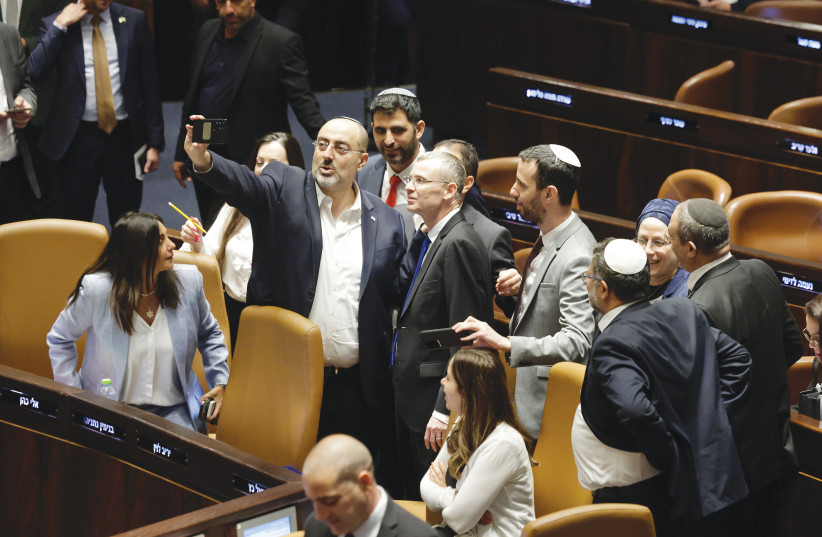Prime Minister Benjamin Netanyahu warned that Israel would enter “uncharted territory” if the High Court of Justice struck down the Knesset’s passage of the first leg of his government's judicial reform plan.
“We will go into unchartered territory, and I would like to believe that they would not do that,” Netanyahu said in an interview with CNN on Thursday, the latest in a series of at least three interviews he gave to major US news outlets.
He spoke just three days after the Knesset approved the reasonableness standard bill, which narrowed the Supreme Court’s powers to review government policies.
CNN’s Wolf Blitzer asked Netanyahu if he would abide by a Supreme Court decision to dismiss the Knesset’s passage of that law as illegal.
No straight answer from Netanyahu
“I hope we do not get to that,” Netanyahu said, as he refused to confirm if he would respect such a court decision, stating instead that Israeli would enter “uncharted territory and I would like to believe that they [the court] won’t do that.”

He appeared to suggest that the court did not have the authority to conduct that kind of review.
Although Israel does not have a constitution, he compared the Knesset’s passage of the reasonableness standards law to a constitutional amendment.
“We’re all subject to the rule of law. The Prime Minister is subject to the rule of law. The Knesset, our parliament … judges are subject to the law, everyone is subject to the law.”
“The closest we have to a constitution are basic laws, that is what we are dealing with. What we are talking about is a potential situation where in American terms, the US Supreme Court would take a constitutional amendment and say that it's unconstitutional, that is the kind of spiral you are talking about and I hope we don’t get to that.”
Opponents of the Knesset’s vote earlier this week warned that it is the first step in a judicial overhaul program that would transform the country into a dictatorship. The protests against the plan have rocked and divided the country since Netanyahu came into power at the end of December.
Netanyahu, in his interviews with CNN, ABC, and NPR defended his plan as a step that would strengthen Israeli democracy.
“We’re not trying to weaken the Supreme Court we are trying to bring balance between the three branches of government, which is the essence of democracy,” he said.
“We want an independent court, but not an all-powerful court,” Netanyahu said.
In his interview with ABC, he described the judicial change as “minor” and that opposition to it was “silly.”
Israeli pundits concerned over Netanyahu's 'lack of respect' for courts
The CNN interview was widely quoted in the Hebrew media, with pundits expressing concern that Netanyahu’s responses showed a lack of respect for the court.
National Unity Party head MK Benny Gantz said, “the fact that the Prime Minister is unable to say that he will respect all court rulings - is a warning signal.
"Even if you do not agree with the court rulings - it is mandatory to fulfill them and the first person who is obliged to do so is the head of the executive authority,” Gantz said.
His political spokesperson said that “Israeli governments have always respected the court's decisions and the court has always considered itself subject to fundamental laws to which it attributes the status of a constitution.
“Like the majority of Israeli citizens, Netanyahu believes that these two principles should continue to be maintained together,” the spokesperson said.
Netanyahu to FOX: Reservists' protest does not weaken IDF readiness
Separately, Netanyahu told FOX News that the reservists who had resigned to protest his judicial reform have not weakened Israeli’s military readiness.
“No one should sell short Israel’s military readiness and our ability to ...fend off aggression from our enemies at any time.”
“Israel has a very large army relative to our size, it has hundreds of thousands of people, including hundreds of thousands of reservists.”
“Our readiness is there. If our enemies test it, they might, I hope they don’t, they will find that what I have said is true,” Netanyahu said.
